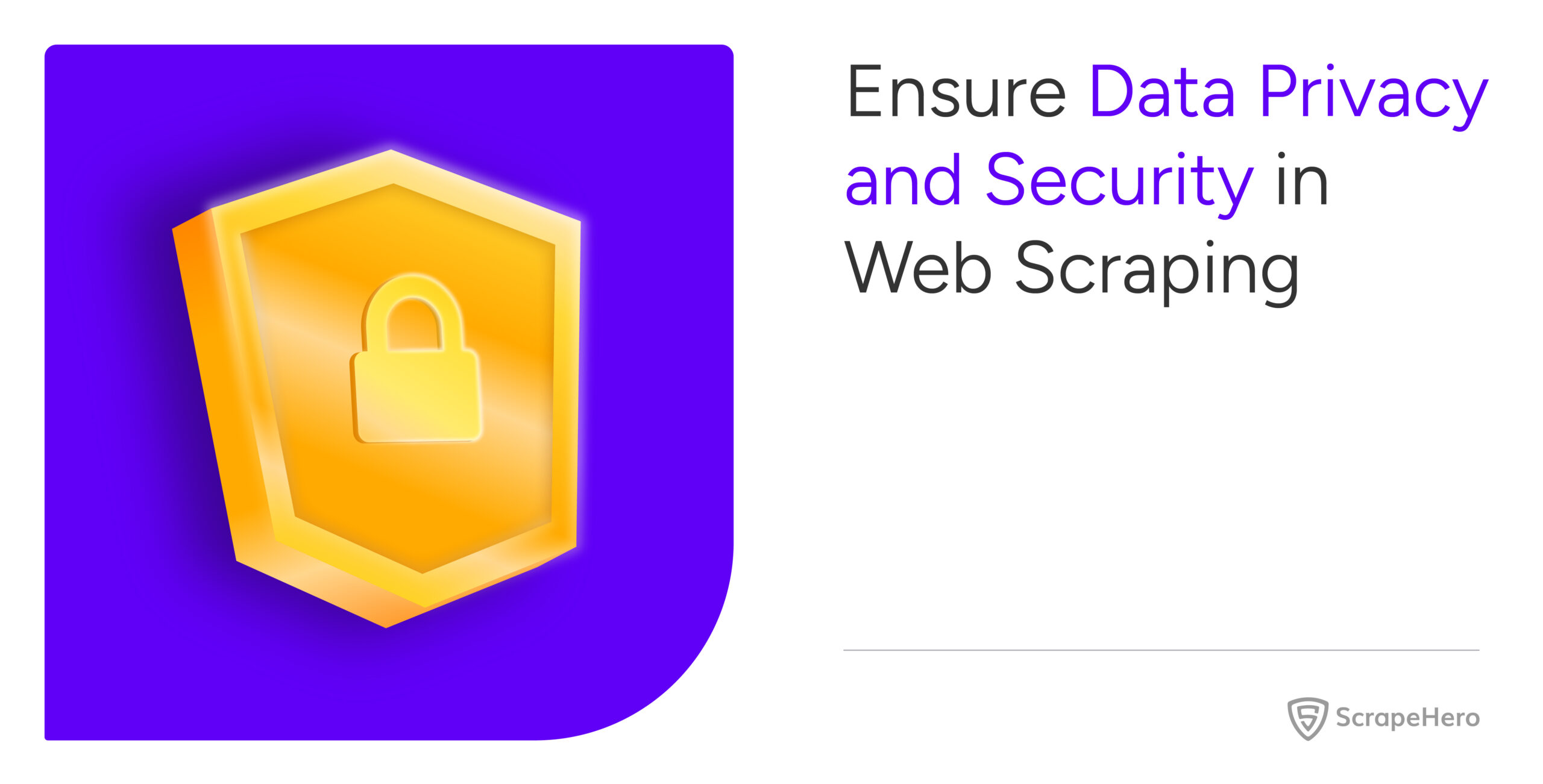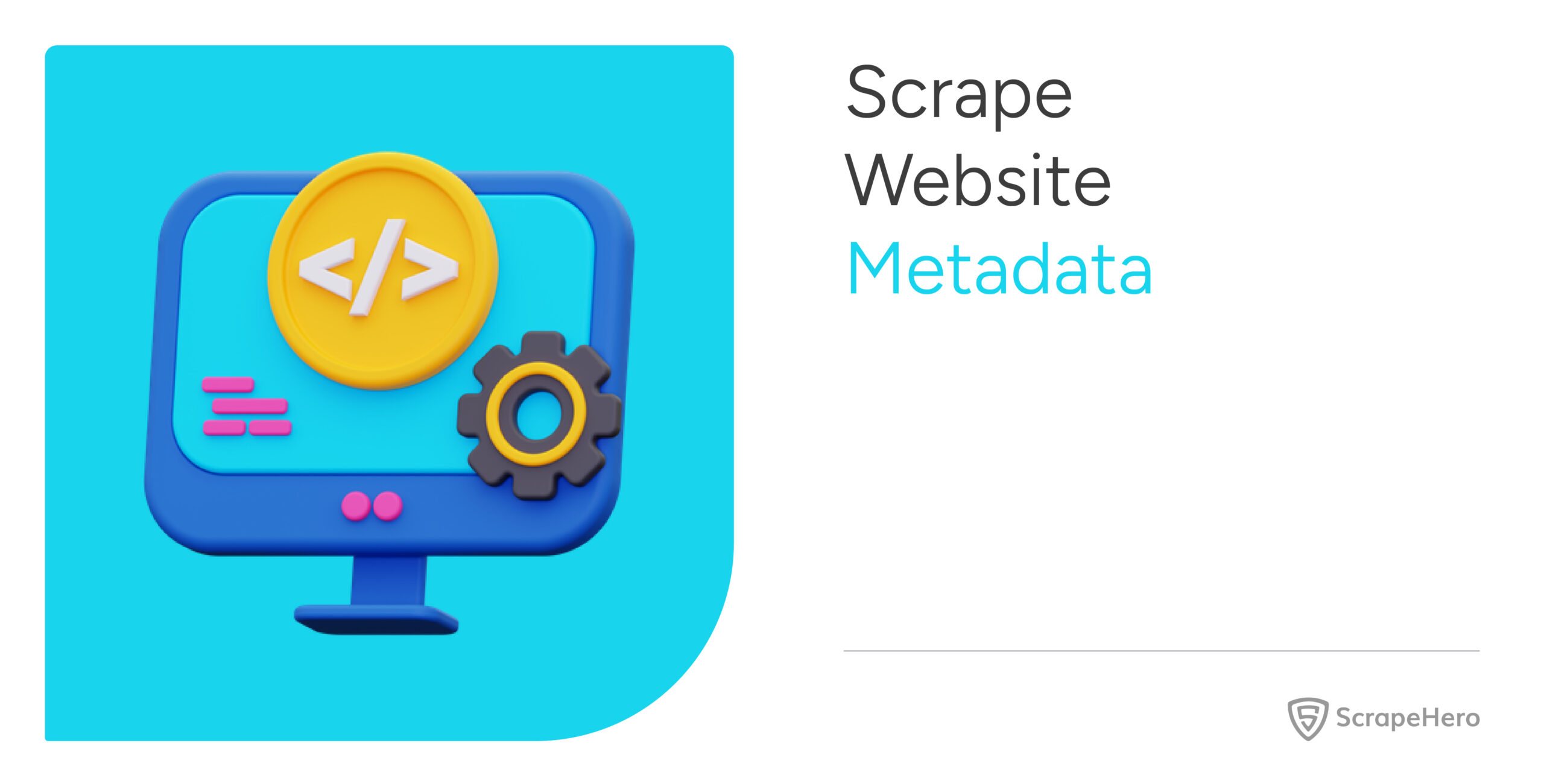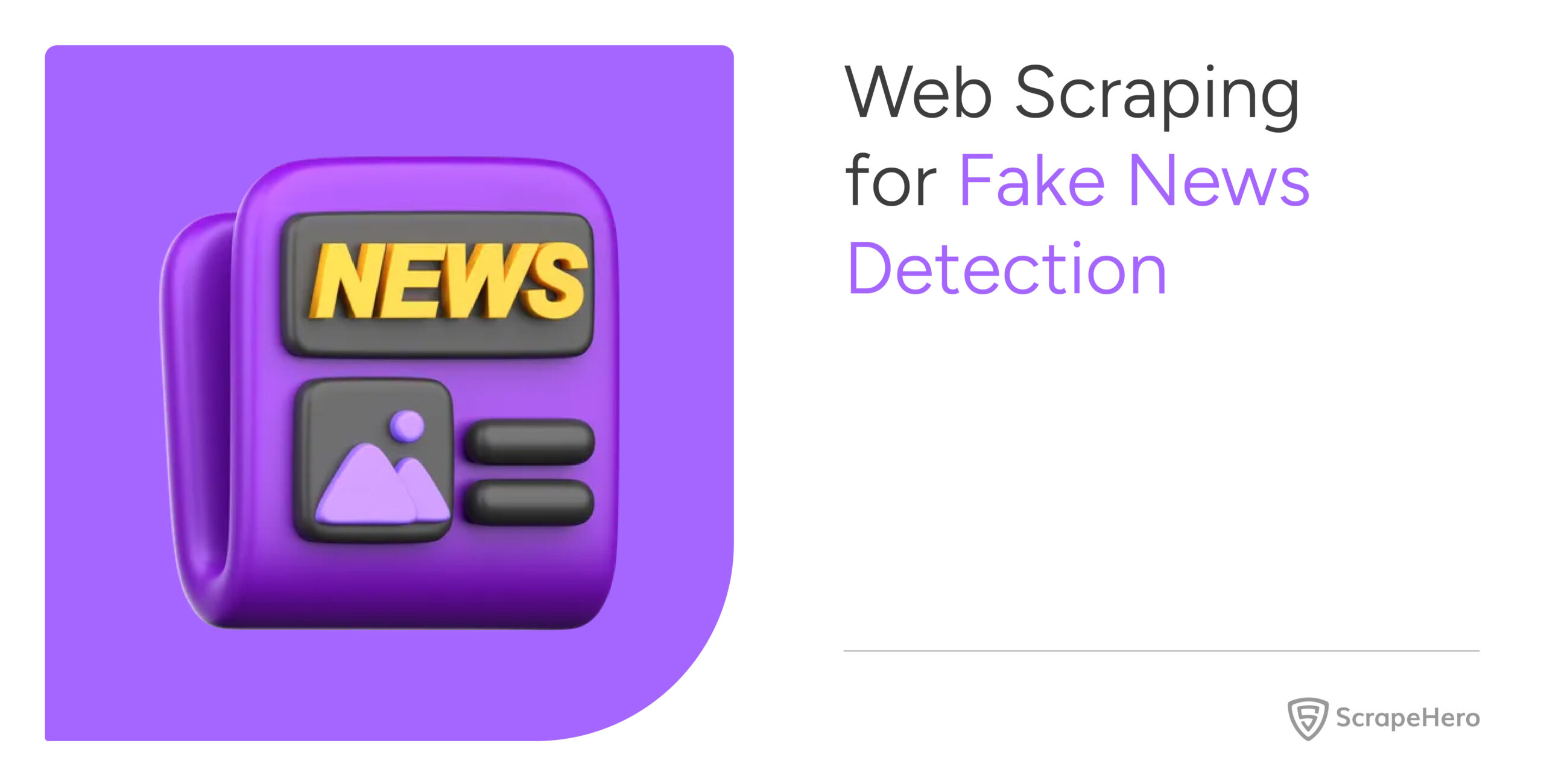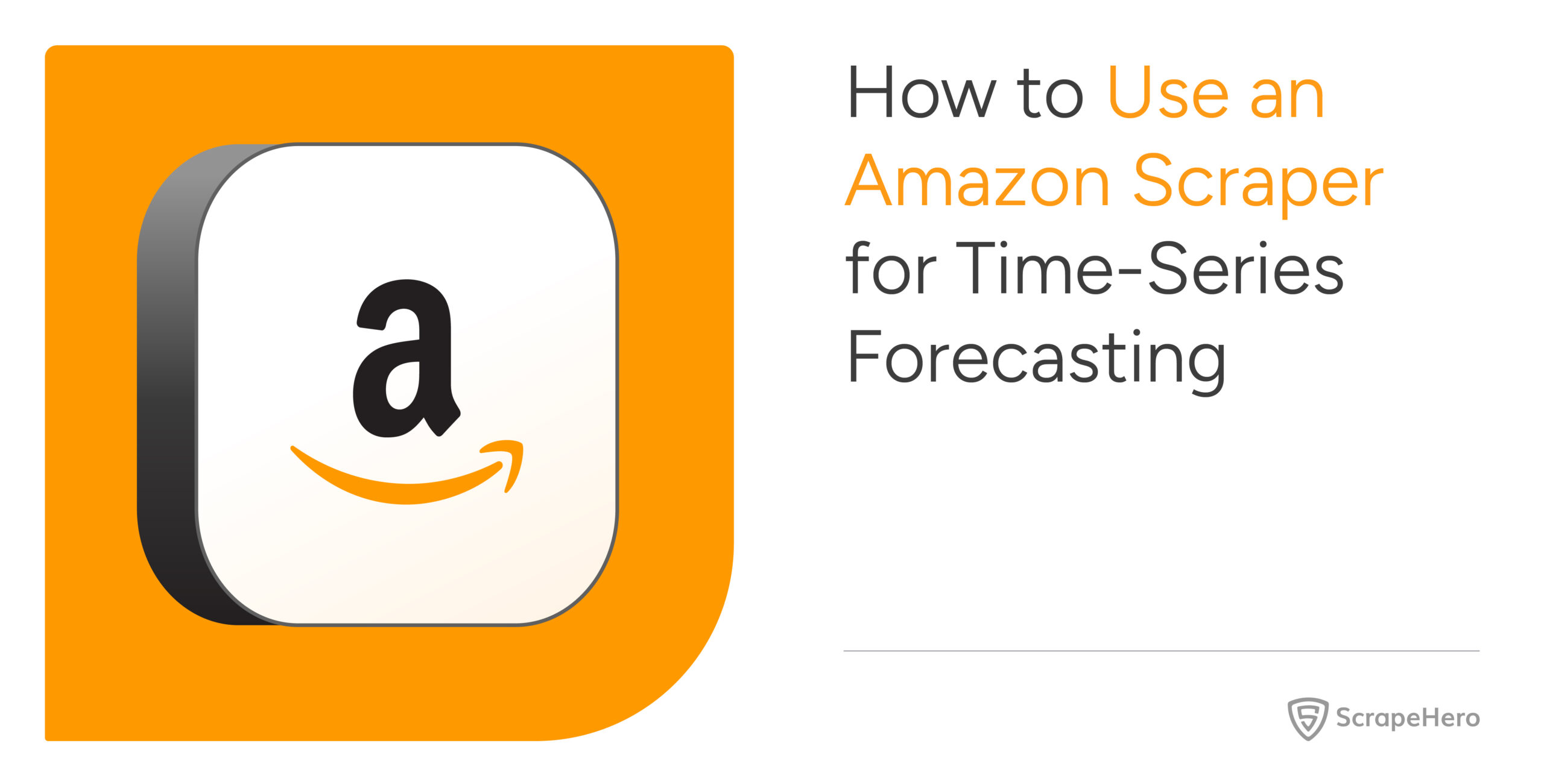While web scraping public data is generally legal, it can raise concerns if it unintentionally captures sensitive information, potentially breaching legal standards and risking an organization’s reputation and finances.
So, the question is, how can you use web scraping effectively while safeguarding user privacy and maintaining trust?
This blog covers some practical solutions for ensuring data privacy and security in web scraping, helping you minimize risks and maintain compliance with privacy laws.
Understanding Web Scraping Risks
If web scraping is done improperly, it can pose significant risks to the scraper and the website. So, let’s first clearly understand the risks involved.
-
Data Privacy in Web Scraping: The Risk
Web scraping carries the risk of exposing sensitive user data, and if proper consent is not obtained, it can even lead to violations of privacy regulations.
Depending on the jurisdiction, the consequences, such as hefty fines, lawsuits, or reputational damage, may vary, even if the scraping is unintentional.
Additionally, if the scraped data is mishandled, it can lead to cybersecurity threats like data breaches or misuse of private information, elevating the risks further.
Leaked sensitive data can erode customer trust and damage the credibility of the organization, potentially causing long-term harm.
So, it is essential that you comply with privacy laws and implement strict protocols to prevent the collection or misuse of sensitive data.
-
Data Security in Web Scraping: The Risk
Data security is as essential as data privacy in web scraping. Lack of proper security measures leads to vulnerability to theft or unauthorized access to the extracted data.
When there are insecure storage systems or weak authentication protocols, attackers exploit these vulnerabilities in the scrapers’s infrastructure, leading to data leaks or manipulation.
These breaches cause serious issues and result in tampered datasets, which makes the insights unreliable and harms the business’s decision-making process.
Moreover, the stolen data might be used for malicious purposes, such as fraud, identity theft, or competitive sabotage.
These kinds of incidents disrupt operations and attract regulatory scrutiny and reputational damage, impacting customer trust.
-
Legal and Ethical Issues: The Risk
Web scraping without prior permission, especially when scraping ignoring the terms and conditions of the websites, can result in serious legal consequences.
These legal consequences are not just restricted to breaching terms of service but also intellectual property infringement or violation of data privacy laws like CCPA.
The penalties involved may be hefty fines, injunctions, permanent bans from accessing the website, and, in severe cases, criminal charges.
Also, engaging in unauthorized scraping can harm your reputation and damage the reputation of scrapers in the industry.
Beyond legal concerns, respecting a website’s terms of service is an ethical obligation that promotes fair business practices.
Why worry about expensive infrastructure, resource allocation and complex websites when ScrapeHero can scrape for you at a fraction of the cost?Go the hassle-free route with ScrapeHero
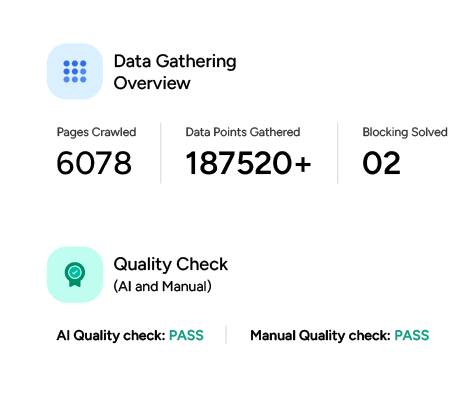
Practical Solutions to Ensure Data Privacy and Security in Web Scraping
Effective web scraping meticulous management to safeguard against privacy breaches, security risks, and legal issues. Here are some practical solutions to secure your operations, and ensure ethical compliance.
- Solutions to ensure data privacy
- Measures to strengthen data security
- Best practices for addressing legal challenges
1. Data Privacy in Web Scraping: The Solution
As discussed, even if web scraping unintentionally collects sensitive user data, it still violates privacy regulations like CCPA if done without proper consent.
To avoid exposing personal data, which can lead to hefty fines and a damaged reputation, it is better to anonymize and filter data.
So, before scraping data, you must ensure that any personally identifiable information (PII), such as names, email addresses, or phone numbers, is anonymized.
For this, you can use filters or scraping rules that exclude sensitive or private information such as financial records, medical data, or login credentials.
Also, it is essential that you periodically audit your scraping operations to ensure that you’re not collecting data that you shouldn’t.
2. Data Security in Web Scraping: The Solution
You already know that the scraped data is vulnerable to theft, leaks, or manipulation if there are no proper security measures.
If the security measures are not strengthened, then attackers could exploit weaknesses in your infrastructure, gaining unauthorized access to sensitive data.
So, it is essential to adopt measures like encryption, regular security audits, and access control in order to strengthen security.
Try to use encryption protocols such as HTTPS for secure transmission of data and conduct periodic security audits on your scraping infrastructure to make sure that your systems are up to date.
Also, it is essential to limit access to sensitive data to only authorized personnel. To do this, you can implement role-based access control (RBAC) and multi-factor authentication (MFA).
3. Legal and Ethical Issues in Web Scraping: The Solution
Since many websites have Terms of Service prohibiting scraping, it is not a wise deal to violate intellectual property rights, which can lead to ethical and legal repercussions.
This issue can be resolved by following some ethical practices while web scraping. You must review the Terms of Service of a website before scraping.
In order not to violate any rules or restrictions and follow a fundamental rule in ethical web scraping, respect the robots.txt file of websites, which lists sections of the site that should not be scraped.
Suppose the website provides official APIs for data extraction. Use them whenever possible, as they are specifically designed to give you the data in an ethical way.
You can avoid all the legal consequences and maintain a reputation for responsible data usage when you ensure that you are compliant with legal standards and ethical practices.
Explore our comprehensive legal information page and stay informed on the recent controversial court cases involving web scraping.
How Does the ScrapeHero Web Scraping Service Help?
Web scraping and data privacy/security are intricately linked. When improper scraping practices occur, individuals or enterprises may face legal and security risks.
So it is essential that you balance your data acquisition goals with the need to respect users’ privacy rights with ethical considerations.
A professional web scraping service like ScrapeHero can help you navigate these complexities by offering compliance assurance and enhanced security features.
Our advanced security measures, along with best practices for ethical data collection, can effectively manage the data we collect, minimizing risks associated with privacy breaches and security vulnerabilities.
Frequently Asked Questions
Data privacy involves protecting personal information from unauthorized access, while data security involves safeguarding all forms of data from breaches and attacks.
To ensure data privacy and security in web scraping, you should follow legal guidelines, use encryption, and employ security measures such as rotating proxies and rate limiting.
To scrape data from a protected website without getting blocked, you should first check for available APIs. Always respect the website’s terms of service and avoid websites that prohibit scraping.
Web scraping protection refers to the measures like IP blocking and CAPTCHAs taken by websites to prevent unauthorized scraping.
The best practices for ensuring data privacy while web scraping includes scraping publicly accessible data, avoiding personal or sensitive information, and following all legal guidelines.

